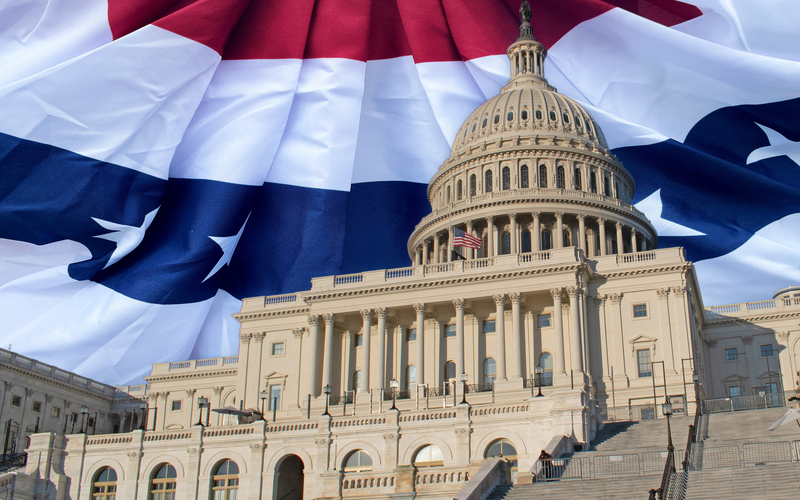Biden's AI Policy Is Based On a Movie?
Sign up for a six month free
trial of The Stand Magazine!
It’s kind of hard to miss a drag queen reading to children in a public library. That’s in-your-face perversion designed to recruit young minds and supported by The American Library Association.
It’s also easy to see that those electric vehicles need to be recharged on a trip to the beach and how the charging station isn’t nearly as available as the gas station. Better guard your gas stove too.
Sometimes, though, the Biden Administration’s agenda isn’t as easy to see.
The president signed an executive order last month that the White House says will help make Artificial Intelligence – known as AI – safe, secure, and trustworthy.
Some of the biggest names in technology say AI has the potential to make life much easier or end it as we know it. Some of those names have called for a pause in development. That’s the great point of contention in the industry right now. Some want to reign in development for the purpose of creating safeguards to keep AI out of the hands of bad actors, while others say the product needs to be advanced as quickly as possible to make sure the good guys are ahead of the bad guys. It’s the Tech version of “If guns are outlawed only outlaws will have guns.”
The problem is that the White House has inserted itself into the conversation without mastering the subject matter.
“The idea of killer robots is real, but so is the idea of reverse discrimination with the executive order signed by President Joe Biden,” Jake Denton, a Tech research associate for The Heritage Foundation, said on American Family Radio last month.
The greatest danger is that policymakers, not just Biden, don’t grasp the technology.
“Our country’s approach to AI governance has been ineffective and unserious. If you were wondering why, it’s because our leaders are crafting policy based on tech depicted in a mediocre Tom Cruise movie,” Denton wrote on the social media platform X.
Biden’s interest in AI was stoked in recent months as he saw fake images of himself, his dog, and AI-generated poetry – and also by a viewing of ‘Mission Impossible: Dead Reckoning Part One’ on a trip to Camp David, Deputy White House Chief of Staff Bruce Reed told The Associated Press.
“The real issue here is most of the basis for our leaders across the board, not just Biden, is grounded in kind of the sci-fi depiction of artificial intelligence. It's not based in reality, so we're not really getting a real sense of the threat because they're just chasing the shiny object that's depicted in a movie like that. The killer robots really could be a thing, but it's not the most important thing that we have to worry about,” Denton said.
“A lot of people have been concerned over the ability of these chat-based systems to maybe teach you how to make a dirty bomb or teach you how to execute a shooting in a more efficient manner. Those are all things that you could potentially jailbreak these models or even get them in their kind of off-the-shelf capacity to instruct you on how to do. And we're barely even scratching the surface of legislation or an EO to force a company to eliminate that from the model,” Denton continued.
Under other circumstances, I might be encouraged to hear that the president likes a good spy flick. Instead, it’s alarming to hear an industry expert describe how little government officials – not just Joe Biden – understand about the potentially dangerous technology.
It’s also alarming to hear how the President wants to use AI to insert his social agenda. And to insert it in ways that aren’t nearly as obvious to most Americans, ways that fly under the radar as his will is done by legislation that forces certain responses in places where AI will one day be used. Which is to say everywhere.
The sweeping executive order aims to “address algorithmic discrimination” and “ensure that AI advances equity,” which Christopher Rufo, a senior fellow at the Manhattan Institute, said on American Family Radio last week. That’s code for left-wing social agendas like Critical Race Theory and Diversity, Equity and Inclusion.
“They want to embed the principles of CRT and DEI into every aspect of AI,” Rufo wrote on the social media platform X.
“When you read the entirety of the bill that type of language is present throughout the entire thing. A lot of people are focused on how it applies in that Civil Rights section, but it actually has broader implications throughout the entire order,” Denton said.
The National Security section within the EO includes an emphasis on “red teaming,” which is a strategy used by developers to essentially weed out vulnerabilities within a system. It’s also referred to as “ethical hacking.”
But the definition of red teaming in this executive order places a great deal of emphasis on eliminating what the Biden Administration sees as harmful responses or discriminatory outputs, Denton said.
“So even where a CEO intended to protect our national security, it's focused on that social justice agenda,” Denton said.
He used job-hiring as an example.
“Let’s say that the Silicon Valley companies really take this to heart and try and make (hiring practices) as equitable and as inclusive as possible. You’re applying for a new job, and AI is the first to vet your resume. We’ve allowed these Silicon Valley companies to make (AI) as equitable as possible. Maybe they put a multiple in there that only factors race. Maybe your resume doesn’t make it across the board because you’re not the target race, or you went to a university they don’t like so much,” Denton said.
The EO doesn’t define equity, “which kind of raises an enforcement question. If you can’t define it, how are you going to enforce it?” Denton asked.
AI’s impact will quickly grow past the point of customer service with which most Americans are familiar.
Our leaders need to work to ensure AI doesn’t become a subtle advocate for the administration’s social agenda.
(Editor's Note: For more information on this subject click HERE, HERE, and HERE)

Sign up for a free six-month trial of
The Stand Magazine!
Sign up for free to receive notable blogs delivered to your email weekly.



















